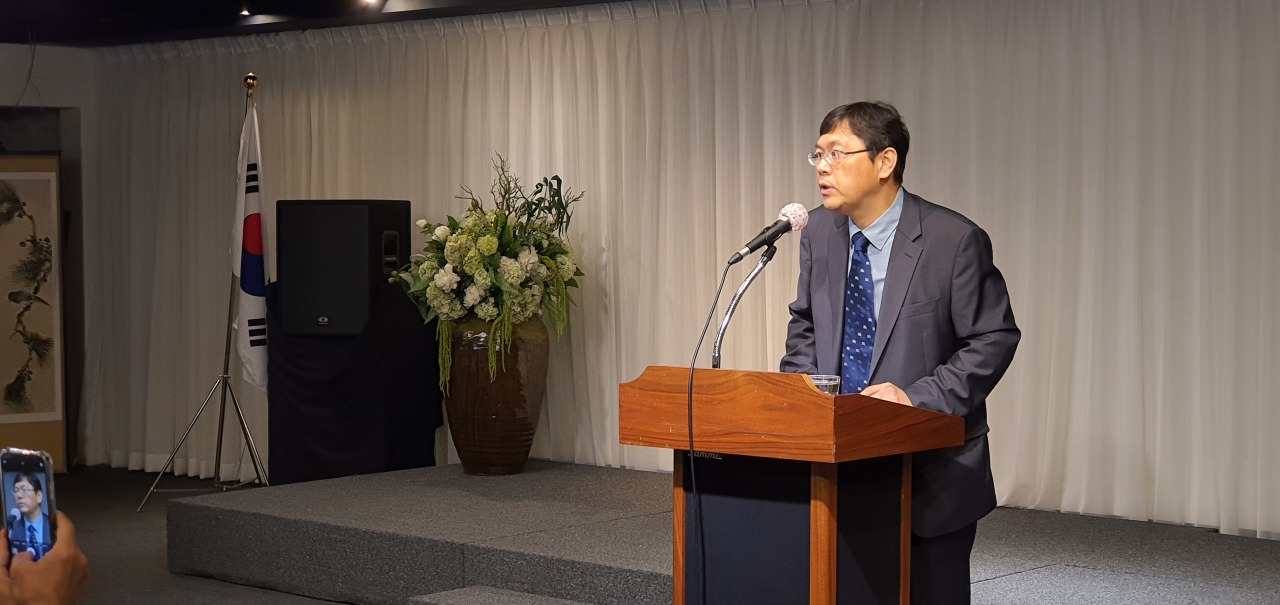The new head of the country’s literary translation institute is not one for big catchphrases.
“I do not want to use the slogan, ‘the globalization of Korean literature,’” said Kwak Hyo-hwan, the Literature Translation Institute of Korea’s new president, in an interview with The Korea Herald on Tuesday.
Rather, he would like to introduce Korean literature as part of global literature.
“For this to happen, I feel the need to break existing stereotype of Korean literature as being written by Koreans with the aim to express Korean ideologies and sentiments,” said Kwak.
Korean literature’s boundaries are not clear-cut anymore, a positive development that shows the potential of Korean literature to cover a much bigger realm, according to Kwak.
“Today, there are people living overseas who have never been to Korea and yet speak fluent Korean. Also, the lives and thoughts of immigrants living in Korea can play a huge part in K-literature,” he said.
In fact, the current milieu could be an opportunity to create an inclusive and dynamic environment for expanding Korea’s literary sphere, Kwak explained.
Appointed in May, Kwak, 54, graduated from Konkuk University’s Korean literature studies and made his literary debut as poet in 1996. Previously, Kwak served as an executive director of Daesan Foundation for six years.
When asked if there are any plans to work with North Korean literature, Kwak said, “We face two big problems that prevent us from opening a dialogue on the literature of North Korea. First is the ideological differences of the two sides. Second, there is no way to solve the copyright issues.”
A close examination of global readers’ interest in North Korean literature shows that the interest is not in the works and the authors, but in that country’s reality and the peoples’ lives, according to Kwak.
“I always tell my fellow literary critics and scholars that the true power and charm of literature derives not from history telling, but from the individuals’ daily narratives,” he said.
The number of applications for Korean literature translation and publication by overseas publishers recorded 97 cases in 2019 and 142 in 2020. More than 200 applications are expected this year.
One noticeable change over the years is that publishers and readers today are more interested in young rising writers in Korea, according to Yoo Young-seon, assistant manager for the policy planning team at LTI Korea.
The 2016 Man Booker International Prize winner Han Kang is the most translated Korean author, her works having been translated into 22 different languages. Novelist Hwang Sok-yong is a close second with titles available in 20 languages, according to the LTI Korea.
At a press conference held earlier in the day, Kwak said that the LTI Korea was developing an integrated platform as part a new strategy to effectively introduce Korean literature overseas. It also continues to seek the establishment of a graduate school for translation studies.
The establishment of a graduate school-level institution for translation has been LTI Korea’s long-held wish and Kwak said he would work with the Ministry of Education to raise elevate the status of the Translation Academy operated by LTI Korea to a graduate school-level educational institution.
The academy currently produces around 30 graduates each year, 90 percent of whom are foreign nationals. Awarding masters and doctoral degrees would give the graduates greater opportunities to work in diverse fields related to literature.
The first overseas publication of translated Korean literature in history was “Korean Tales” in 1889 by the US. Some 2,500 translated pieces Korean works of literature exist today, according to the LTI Korea.
By Kim Hae-yeon (
hykim@heraldcorp.com)







![[Weekender] Korea's traditional sauce culture gains global recognition](http://res.heraldm.com/phpwas/restmb_idxmake.php?idx=644&simg=/content/image/2024/11/21/20241121050153_0.jpg)
